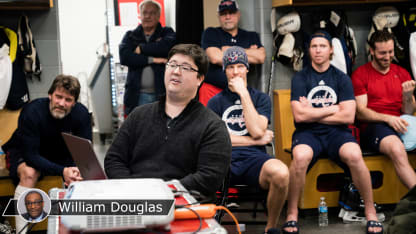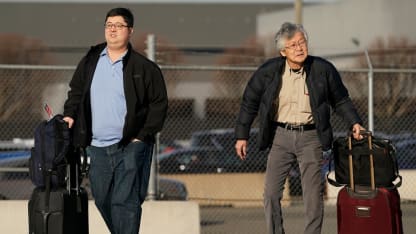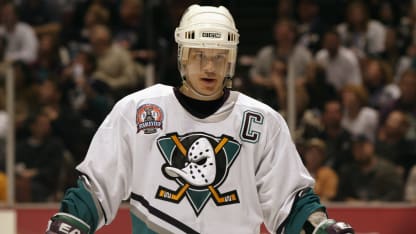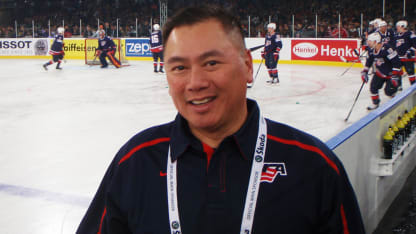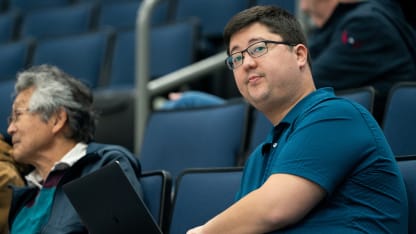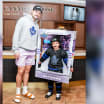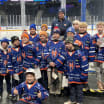Seattle feels fortunate to have landed Ohashi. Kraken director of hockey strategy and research Alexandra Mandrycky lauds him as someone who keeps pace with the game's evolution on the ice and with the ever-changing technology in a video position that's grown in importance and stature in the NHL in recent years.
Video analysts and coaches have become the eyes of coaching staffs, helping them see trends on the ice in real time. They are also often deciders. Coaches usually ask video coaches or analysts for quick replays before challenging a goal on a potentially missed offsides play that could determine the outcome of a game.
"In these COVID times, video may be even more important than it was before, certainly over the next year," said Mandrycky, an analytics expert. "Selfishly, I'm excited. He can sort of speak the analytics language and also the X's and O's, which we have found really, really useful with him working with our research and development group."
Ohashi is among a small but growing number of video analysts and coaches of color who've joined NHL teams in recent years.
The Toronto Maple Leafs hired Sam Kim as their video and coaching coordinator in September after he served as video coordinator for Bakersfield of the American Hockey League for two seasons and video coach for South Korea's men's team at the 2018 PyeongChang Olympics.
Samson Lee, who is Taiwanese-Canadian, joined the Los Angeles Kings as video coach in 2015 after holding the same job with Wilkes-Barre/Scranton, the AHL affiliate of the Pittsburgh Penguins.
Tommy Cruz, a former junior hockey goalie who is Cuban-American, has been the video coordinator for the Vegas Golden Knights since 2017 after three years in the same job with the Florida Panthers.
Nigel Kirwan has been the video coach for the Tampa Bay Lightning since 1996 and became the first Black coach on a Stanley Cup team when the Lightning first won it in 2004. His name was inscribed on the Cup again after the Lightning defeated the Dallas Stars in the 2020 Stanley Cup Final in six games on Sept. 28.
Ohashi said the ascension of the video coach/analyst position has created a different path into the NHL and in hockey in general for minorities who might not have played or been involved in the game at the elite level. Having video expertise is helping change the hiring system away from who you know to one that gives more consideration to what you know and what you can do, he said.
"I think it's becoming more merit-based rather than a position of convenience," said Ohashi, who played club hockey as an undergrad at Bates College in Lewiston, Maine. "Obviously, it's no secret that there's a huge population of extremely talented people of color in the country that are capable of doing a job that anyone else can do. And we need more diversity in hockey."
